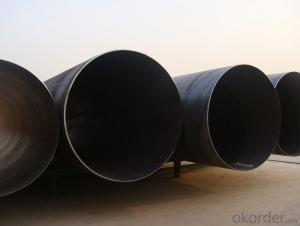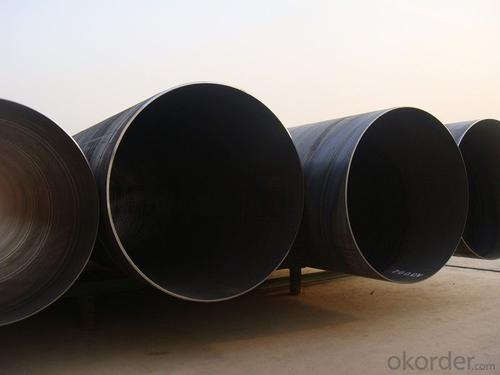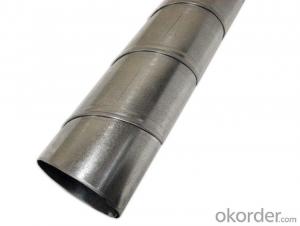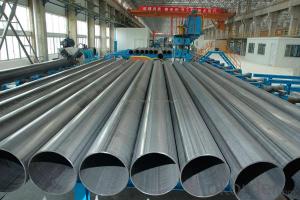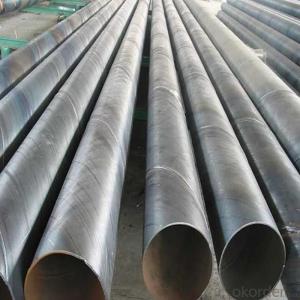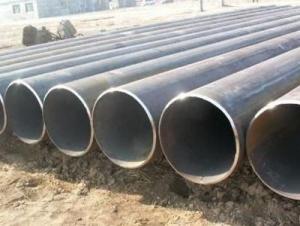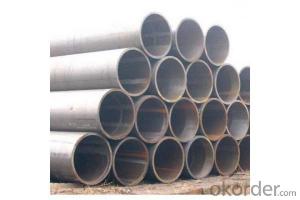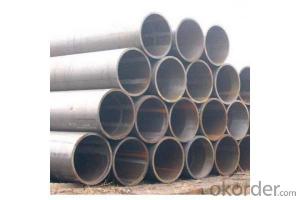LSAW SSAW CARBON STEEL PIPE ASTM API 32-36-38''
- Loading Port:
- Tianjin
- Payment Terms:
- TT OR LC
- Min Order Qty:
- 1 m.t.
- Supply Capability:
- 3000 m.t./month
OKorder Service Pledge
OKorder Financial Service
You Might Also Like
Packaging & Delivery
Packaging Detail: | Normal exporting packing,in container or bulk vessel or as per clients' request |
Delivery Detail: | 2 months after confimed contract |
Specifications
Large Diameter API 5L X70 PSL2 LSAW Steel Pipe
Grade: X42, X46, X50, X52, X60, B, C
OD: 1.5"-28"
WT: SCH10-SCH160
Large Diameter API 5L X70 PSL2 LSAW Steel Pipe
Specifications:
u Standard: API 5L
u Grade: B, C, X42, X46, X50, X52, X56, X60, X65, X70, X80
u OD: 1.5"-28"
u WT: SCH10-SCH160
u Length: 5-12m
u Ends Finish: plain end, bevel end, grooved end
u Surface Treatment: bare, black varnished, oiled finish, red color, anti-corrosion, 3PE, FBE or epoxy coating
u Technique: hot rolled or cold drawn
u Application: api 5l steel pipe for conveying oil, water, gas
u Invoicing: based on theoretical weight or actual weight
u Payment Terms: L/C at sight, T/T or Western Union
u Trade Terms: FOB, CFR, CIF
u Certification: ABS manufacturing assessment, ABS design assessment, API 5CT, API 5L, DNV manufacturer certificate, ISO9001 quality management system certificate, ISO14001 environment management system certificate, GB/T28001 occupational health and safety management system certificate, A1 class manufacturing license of special equipment certificate, CCS, GL, LR, SGS, TüV, PDE
- Q: Can steel pipes be used for chemical refineries?
- Chemical refineries can utilize steel pipes for their operations. Steel pipes are frequently employed in chemical refineries because of their exceptional strength, long-lasting nature, and resistance to corrosion. Given the harsh conditions present in a chemical refinery, including exposure to corrosive chemicals and extreme temperatures, it is necessary to employ materials that can endure such circumstances. Steel pipes possess the capability to withstand these challenges and are often preferred for their ability to securely and efficiently transport diverse fluids and gases. Furthermore, the weldability of steel pipes permits easy installation and maintenance within intricate refinery systems. All in all, steel pipes are a fitting choice for chemical refineries due to their durability, ability to resist corrosion, and compatibility with the demanding conditions encountered in this industry.
- Q: Can steel pipes be coated for additional protection?
- Yes, steel pipes can be coated with various materials to provide additional protection against corrosion, abrasion, and other environmental factors. Coatings such as epoxy, polyethylene, and zinc can be applied to enhance the durability and lifespan of steel pipes, making them suitable for diverse applications in different industries.
- Q: Is hot dipped plastic pipe steel?
- The hot dipped plastic steel pipe is a steel pipe, and it is made of special antiseptic treated composite steel pipe.
- Q: How do steel pipes perform in extreme weather conditions?
- Steel pipes are highly resilient and perform exceptionally well in extreme weather conditions. They have excellent resistance to corrosion, impact, and temperature variations, making them ideal for withstanding harsh environments such as extreme heat, cold, and heavy rainfall. Moreover, steel pipes are known for their durability and strength, ensuring that they can withstand the forces exerted by high winds, snow, and even seismic activities. Overall, steel pipes are a reliable choice for various applications in extreme weather conditions.
- Q: How are steel pipes tested for leaks?
- Steel pipes can be tested for leaks using various methods, including hydrostatic testing, pneumatic testing, and using leak detection equipment such as ultrasonic testing or helium testing.
- Q: What is an electric welded pipe (EFW)? Seek help!
- Pipe and pipe fittings should be suitable for the gap, usually with micro force insertion is appropriate, the gap is too large or too small will affect the quality of the interface.Check the depth of the plug and slip the spigot into the socket and position correctly.
- Q: What are the main components of a steel pipe?
- The main components of a steel pipe are the pipe body, which is made of steel and provides structural strength and durability, and the pipe ends, which can be either threaded or plain and are used for connecting and joining the pipe to other components or systems. Additionally, steel pipes may also have protective coatings or linings to enhance corrosion resistance and prolong their lifespan.
- Q: What are the different types of valves used with steel pipes?
- There are several types of valves commonly used with steel pipes, including ball valves, gate valves, globe valves, check valves, and butterfly valves.
- Q: What is the difference between seamless steel pipes and seamless alloy steel pipes?
- The main difference between seamless steel pipes and seamless alloy steel pipes lies in their composition. Seamless steel pipes are made from carbon steel, which is primarily composed of iron and carbon. On the other hand, seamless alloy steel pipes are made from a combination of carbon steel and various alloying elements such as chromium, nickel, or molybdenum. These alloying elements enhance the properties of the steel, making it more resistant to corrosion, heat, and pressure. They also provide improved strength and durability, making alloy steel pipes suitable for applications that require high performance and reliability. In summary, while both seamless steel pipes and seamless alloy steel pipes are used for various industrial applications, alloy steel pipes offer superior performance due to their alloying elements, making them more suitable for demanding conditions.
- Q: What is the difference between steel pipes and polyethylene pipes?
- Steel pipes are made of a strong and durable material, steel, which makes them suitable for high-pressure and high-temperature applications. They are also resistant to corrosion, making them ideal for transporting liquids and gases. On the other hand, polyethylene pipes are made of a flexible plastic material, which makes them easier to install and handle. They are lightweight, resistant to chemicals, and have a low risk of corrosion. However, they may not be suitable for very high-pressure or high-temperature applications.
Send your message to us
LSAW SSAW CARBON STEEL PIPE ASTM API 32-36-38''
- Loading Port:
- Tianjin
- Payment Terms:
- TT OR LC
- Min Order Qty:
- 1 m.t.
- Supply Capability:
- 3000 m.t./month
OKorder Service Pledge
OKorder Financial Service
Similar products
Hot products
Hot Searches
Related keywords
